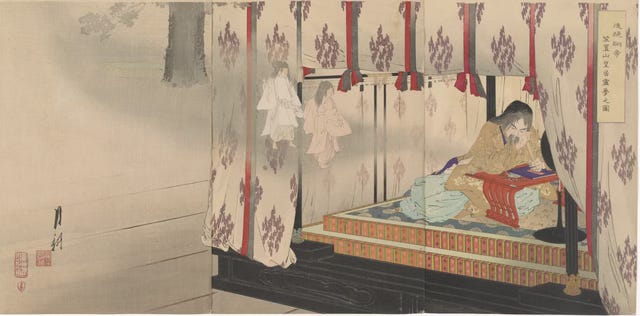Thoughts In and Out of Season 10
Ghosts, More Ghosts, Beatles, More of the Beatles, Baseball, More About Baseball...
1. Ghosts in Japan. The most common word for “ghost” in Japanese is yūrei (幽霊)—yū meaning “shadowy,” “obscure,” “dim,” rei meaning “spirit”—though there are a few other traditional terms. And, of the many different variants of the species, the one that perhaps comes nearest to the typical Western notion of what a ghost is would be the jibakurei (地縛霊), a “grounded” or “earth-fettered spirit” who haunts a particular place, often bound to it because he or she died suddenly and violently there, perhaps by murder or suicide, perhaps due to some unforeseen catastrophe. I suppose, then, that the ghosts I mentioned in my last installment in this series—the ones whom many taxi-drivers in the Miyagi prefecture in Japan reported having picked up and given rides for some time after the terrible 2011 earthquake and tsunami—would qualify as jibakurei. I also mentioned a friend of mine in that column, an American translator who lives in Japan who wrote to me to say that the Japanese in general are less superstitious than we in the West tend to be with regard to things spectral. He did not actually put it that way; those are my words. What he actually said was that, for most Japanese, the dead are not really departed so much as they are slightly removed, as if just in an adjacent room, on the other side of a sliding shoji screen; thus, ghosts do not seem at all unnatural to them. He also remarked at the time that, among his Japanese friends, even those who consider themselves severe rationalists seem to have no difficulty believing that certain souls or reikon (霊魂) remain for a while in the places where they died, occasionally revealing themselves to the living.
Keep reading with a 7-day free trial
Subscribe to Leaves in the Wind to keep reading this post and get 7 days of free access to the full post archives.


